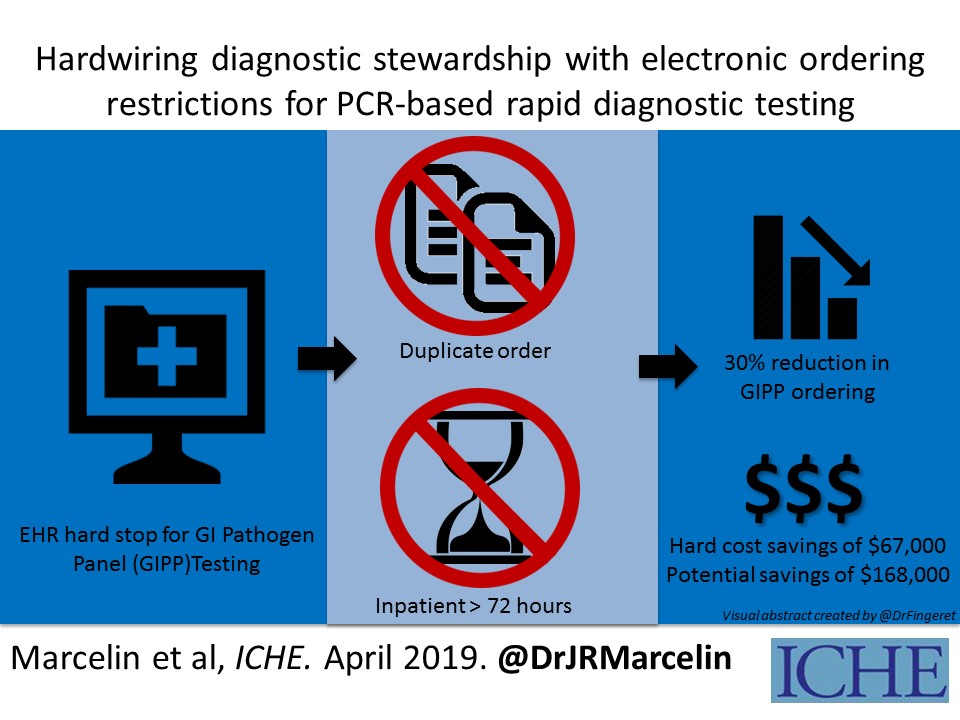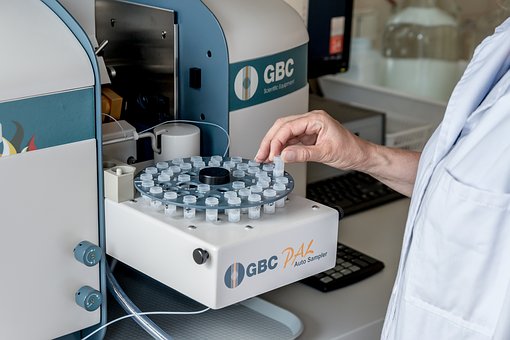Tag: #AntimicrobialStewardship
Are you ever involved with prescribing antibiotics in the hospital? We want to hear from you!
The Nebraska Medicine Antimicrobial Stewardship Program (ASP) invites you to participate in a research survey entitled: Use of Oral Antibiotic Therapy (OAT) for Definitive Treatment of Uncomplicated Bloodstream Infections (uBSIs): Opportunities for Antimicrobial Stewardship. There are several studies describing successful use of oral antibiotics to treat bloodstream infections, but are clinicians actually using oral antibiotics […]
Nov 14, 2019

Journal Club – Stewardship in Community Hospitals: How should we spend our limited resources?
Stewardship in Community Hospitals: How should we spend our limited resources? The following is a review by our ID Fellowship Program Director Dr. Trevor Van Schooneveld from our last Infection Control/Antimicrobial Stewardship Journal Club. He discussed the article by Anderson et al: Feasibility of Core Antimicrobial Stewardship Interventions in Community Hospitals. JAMA Network Open. 2019;2(8):e199369. Antimicrobial stewardship is […]
Sep 9, 2019
Inpatient Diarrheal Illness…Don’t Flush your Money: Save it with Diagnostic Stewardship!
Recently, a multidisciplinary team at UNMC published a diagnostic stewardship study in Infection Control & Hospital Epidemiology (ICHE) entitled: Hardwiring diagnostic stewardship using electronic ordering restrictions for gastrointestinal pathogen testing, that prompted a press release from The Society for Healthcare Epidemiology of America (SHEA), and a feature on an upcoming ICHE podcast episode. Drs. Jasmine Marcelin and Trevor Van […]
Jul 1, 2019

Do you really need to test the poo? Diagnostic stewardship for (outpatient) diarrheal illness
Rapid molecular testing has changed the landscape of diagnostic approaches to many infectious disease syndromes, including diarrheal illnesses. These panels typically have the capacity to diagnose multiple organisms in one test. The FilmArray gastrointestinal pathogen panel (BioFire) tests 22 stool pathogens. Despite the impact of improved clinical efficiency, these tests are often expensive, especially in […]
May 28, 2019

Does de-escalation of anti-MRSA therapy for culture-negative pneumonia affect patient outcomes?
Nosocomial pneumonia is a common hospital-acquired infection and has a high mortality rate in the critically ill. Because drug-resistant bacteria like Pseudomonas aeruginosa and methicillin-resistant Staphylococcus aureus (MRSA) are commonly responsible for these infections, guidelines recommend broad-spectrum empirical therapy that includes anti-MRSA coverage. Treatment is ideally de-escalated and refined based on culture results. However, culture negative infections […]
Apr 22, 2019

What to Expect in Antimicrobial Stewardship…Shorter is Better, Of Course!
The following was previously posted by Dr. Marcelin to SHEA Journal Club published online in February 2019. Electronic clinical decision support tools and rapid diagnostic testing have significantly impacted the way we practice Infectious Diseases. Despite these scientific gains, Antimicrobial Stewardship still requires an understanding of the behavioral science of prescribing. Prior studies have demonstrated […]
Feb 26, 2019

Prescribing in Pediatric Patients: Who is at Risk?
The following was previously posted by Dr. Marcelin to SHEA Journal Club published online in January 2019. In the inpatient setting, much of the broad-spectrum antibiotic prescribing occurs in the context of the sepsis syndrome, where uncertainty leads to overly broad empiricism. Development of antibiotic-resistant Gram-negative rods (high-risk GNRs) may complicate empiric treatment choices, and […]
Jan 31, 2019

Decisive De-labelling in Cancer Patients: Just what the Doctor Ordered
The following was previously posted by Dr. Marcelin to SHEA Journal Club published online in January 2019. Although 10% of Americans report penicillin allergies, 90% of those allergies are not substantiated. Up to 25% of patients living with cancer report penicillin allergies, but more than half of these are low risk and could tolerate beta-lactams. […]
Jan 16, 2019

SeptiCyte: Is It Ready for Prime-time?
The following is a summary of a recent ID Journal Club, presented and written by 2nd year ID Fellow Dr. Raj Karnatak: Sepsis defined as “life-threatening organ dysfunction due to the dysregulated host response to an infection” [1]. Sepsis most commonly results from a bacterial infection, or less frequently from a fungal or viral infection. […]
Jan 9, 2019

Technology vs. Humans: Role of Rapid Diagnostics and Antimicrobial Stewardship in Cancer Patients
Rapid diagnostic testing (RDTs) plays an important role in Antimicrobial Stewardship Programs (ASP) and highlights the impact of the Microbiology laboratory on reducing inappropriate antibiotic use, particularly in hospitalized patients. Early microbial identification with RDTs can lead to earlier initiation of targeted antimicrobial therapy, which can in turn result in shorter hospitalization, fewer adverse events […]
Jan 3, 2019

Archives
- April 2024
- March 2024
- February 2024
- January 2024
- December 2023
- November 2023
- October 2023
- September 2023
- August 2023
- July 2023
- June 2023
- May 2023
- April 2023
- March 2023
- February 2023
- January 2023
- December 2022
- November 2022
- October 2022
- September 2022
- August 2022
- July 2022
- June 2022
- May 2022
- April 2022
- March 2022
- February 2022
- January 2022
- December 2021
- November 2021
- October 2021
- September 2021
- August 2021
- July 2021
- June 2021
- May 2021
- April 2021
- March 2021
- January 2021
- December 2020
- October 2020
- September 2020
- August 2020
- July 2020
- June 2020
- May 2020
- April 2020
- March 2020
- February 2020
- January 2020
- December 2019
- November 2019
- October 2019
- September 2019
- August 2019
- July 2019
- June 2019
- May 2019
- April 2019
- March 2019
- February 2019
- January 2019
- December 2018
- November 2018
- October 2018
- September 2018
- August 2018
- July 2018
- June 2018
- May 2018
- April 2018
- March 2018
- February 2018
- January 2018
- December 2017
- November 2017
- October 2017
- September 2017
- August 2017
- July 2017
- June 2017
- May 2017
- April 2017
- March 2017
- February 2017
Categories
- Antimicrobial Stewardship
- Bench to Bedside
- Conferences and Presentations
- COVID-19
- Faculty and Staff
- Faculty Recruitment
- Fun With ID
- Guest blog posts
- HIV/AIDS
- ICAP
- ID Grand Rounds Speakers
- ID History
- ID Pharmacy
- IDIG
- IDSA
- In the News
- Infection Prevention and Control
- Journal Club
- Medical Education
- Micro
- Microbe Monday
- NBU
- Nebraska ASAP
- Nebraska Medicine ASP
- Oncology ID
- Pediatric ID
- PharmToExamTable
- Publication Alert
- Research
- Transplant ID
- Uncategorized
- UNMC ASP
- UNMC Enhanced Medical Education Track
- UNMC ID Achievements
- UNMC ID Fellowship
- UNMC SCC
- UNMCID GIVES BACK
- Weekly Corona
- Why I Love ID
Recent Comments